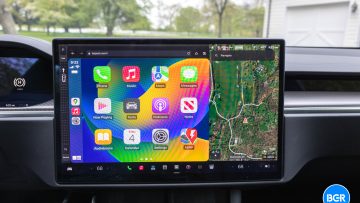Remember when we first heard that a Tesla Roadster that’s speeding through space at 25,000 mph would not crash into Mars, but instead just fly past the red planet? Well it turns out that’s actually great news for scientists who are worried that microorganisms inside Elon Musk’s car could have jeopardized their studies of Mars. But now researchers have conducted various simulations to determine where the Roadster might ultimately end up, with Earth being the car’s most likely destination. Venus and the Sun are also potential targets, but Earth is the most likely among them. Thankfully there’s no cause for concern, and we’ll explain why.
“NASA goes to great lengths sterilizing spacecraft designed to land on Mars, in order to make sure there’s no chance of Earthly microbes contaminating the surface,” the Planetary Society’s Jason Davis wrote before launch. “Such a contamination could harm existing life and muddle scientific efforts to search for said life.”
Three researchers from the University of Toronto have already written a paper that says the Roadster isn’t likely to hit Mars. Titled The random walk of cars and their collision probabilities with planets, the paper is based on the study of Tesla’s trip through space.
“Earth is the most likely place the car will crash, followed by Venus, and then the sun,” lead author of the study Hanno Rein told Business Insider.
Don’t worry though, because there’s no chance that any of us will see the Roadster crash into Earth or any other planet.
“Every 30 years or so, it will come relatively close to the Earth,” Rein said. “This causes a change of a few percent in some of the orbital parameters. The distance to the sun would change slightly, for example, and the orbit’s eccentricity.”
The Roadster will come within one Earth-moon distance from our planet in 2091. After the third flyby, the Roadster will get a somewhat chaotic trajectory through space, and that’s because the car spends plenty of time near Earth’s orbit.
The researchers ran hundreds of simulations spanning 3.5 million years from today and concluded there’s a 6% chance for the Roadster to crash into Earth, and a 2.5% chance to hit Venus. “We’ve not seen any single collision with Mars in 240 simulations, though we continue to run them and see what happens,” Rein said. “The likely outcome is that it will crash, in tens of millions of years, into Earth or Venus or the sun.”








